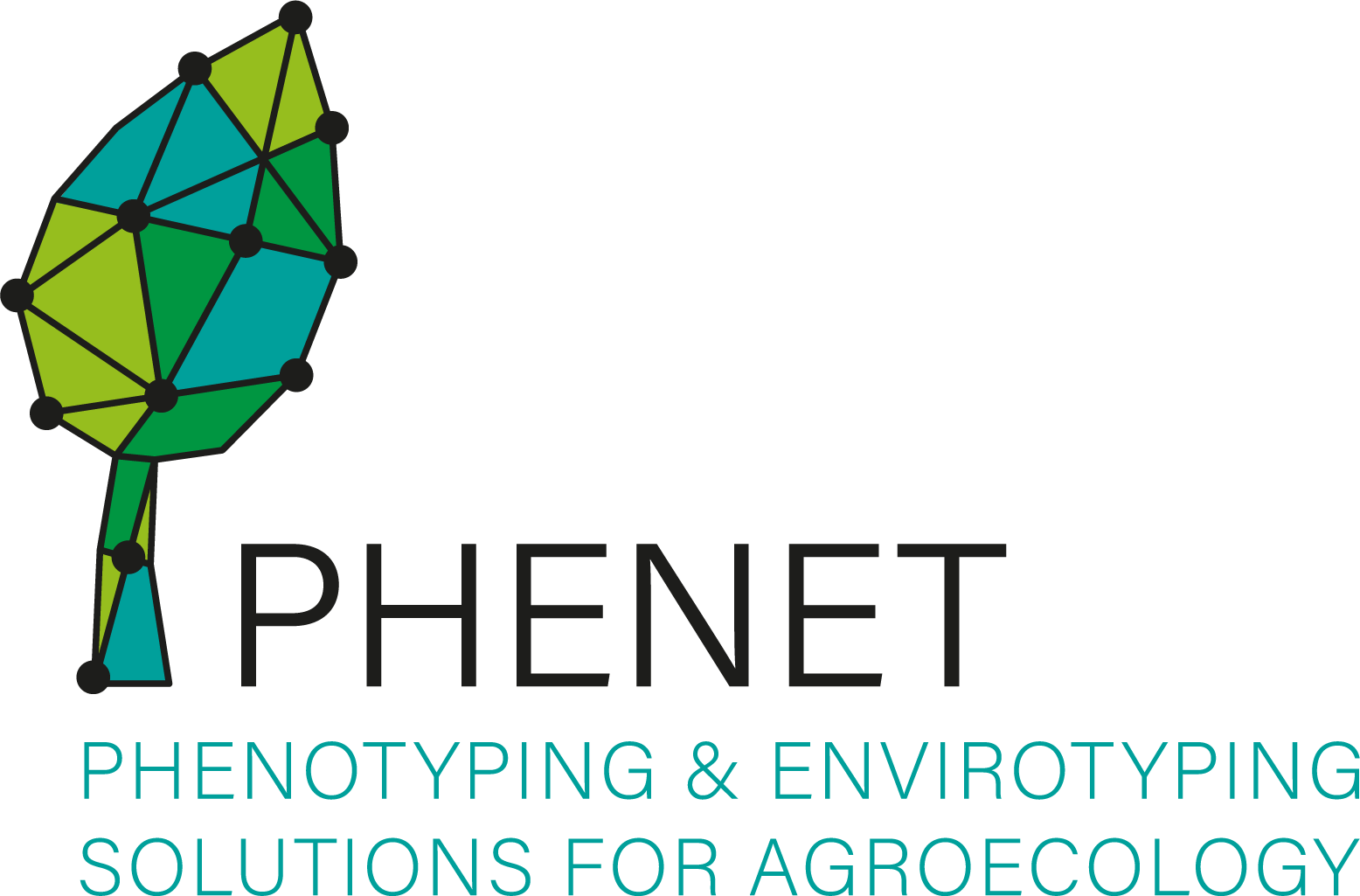PHENET ANNUAL GENERAL MEETING 2024
The PHENET consortium meets for its 2nd Annual General Meeting in Wageningen, 23 – 25 April 2024, to reflect on its achievements generated during the successful 1st year of the project, and to exchange on the future strategy for the next 4 years to come.

In PHENET, the European Research Infrastructures (RI) on plant phenotyping (EMPHASIS), ecosystems experimentation (AnaEE), long-term observation (eLTER) and data management and bioinformatics (ELIXIR) join their forces to co-develop, with a diversity of innovative companies, new tools and methods - meant to contribute to new RI services - for the identification of future-proofed combinations of species, genotypes and management practices in front of the most likely climatic scenarios across Europe.
The PHENET activities have been focusing and align towards the following set of specific objectives:
- Co-developing with industry, new, environment friendly, low-cost, Artificial-Intelligence-based, automated and connected devices gathering sets of sensors able to capture a large diversity of traits (phenotyping), environmental variables (envirotyping) and processes in agroecosystems, in particular related to agroecological transition and climate change (e.g. soil carbon, biodiversity, plant biotic stress tolerance...)
- Developing digital solutions for multi-scale data analytics, connecting phenotypic and environmental information from the plant level to the field and the landscape, in particular leveraging on earth observation (EO) services.
- Providing data integration tools for multiple-sources of information (sensors at various scales, EO, databases and literature). Implement methods for data interoperability with models. Promote tools for data based knowledge and their reuse by European research communities.
- Developing and implementing digital twins, process based, AI or statistical modelling solutions, leveraging on phenotypic and environmental data, in support to the analysis and the prediction of the interaction between Species or Genotypes, Environments and Management practices.
- Demonstrating, through a series of Use Casess, tackling concrete bottlenecks in different agroecosystems, the applicability of tools and methods developed by methodological WPs. Mobilising the largest range of phenotypic and environmental data including on-farm trials and thereby develop joint services by the communities through tight integration and representation of all RIs in the project.
- Developing across all RIs committed, (i) sustained training activities towards a new generation of scientists, engineers and technicians, able to use and refine the advanced tools and methods developed within PHENET, and (ii) outreaching activities leveraging on networks, living labs or stakeholder groups associated with each UC.
The 1st year of PHENET has seen considerable progress towards those objectives, including:
- Developing a generic tool for deep learning inference and correction in an open platform supporting the integration of sensors of different Pheno-Devices.
- Designing an automated method to produce maps of intra-field structural heterogeneity based on multi-year earth observation time series from Copernicus Sentinels satellite imagery.
- Benchmarking of different information system solutions.
- Investigating the state of the art of hybrid artificial intelligence models for plant phenotyping.
- Establishing a collection of training materials, and operating communication and dissemination activities.
Stay tuned on PHENET progress via the PHENET website, PHENET linkedin and PHENET X.
PHENET has received funding from the European Union’s Horizon Europe research and innovation programme under grant agreement No 101094587.
Last Modified: 24.04.2024


